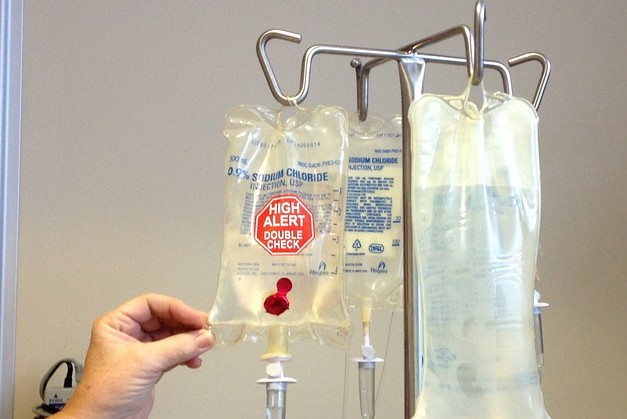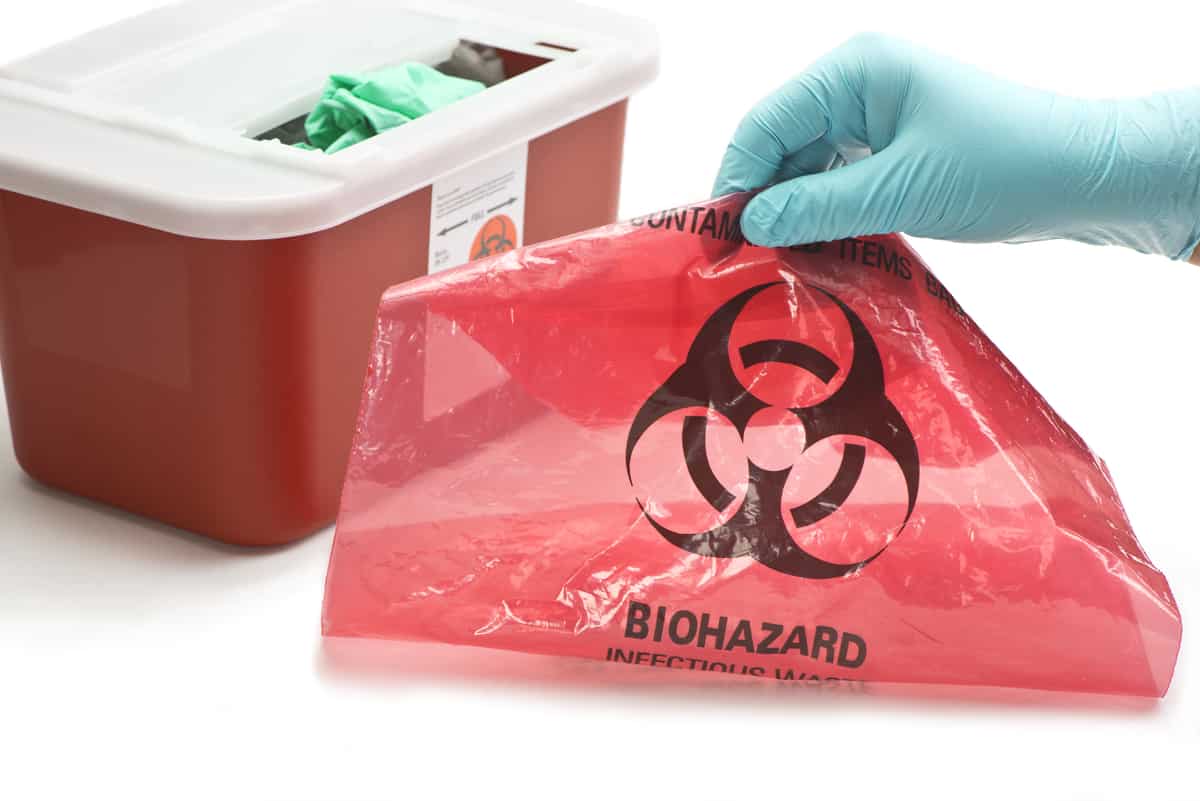Security First: Your Overview to Responsible Medical Waste Removal Services
Security First: Your Overview to Responsible Medical Waste Removal Services
Blog Article
Keep Ahead of Rules: Specialist Suggestions on Medical Garbage Disposal
In a world where the health care industry is constantly evolving, it is vital for medical centers to remain ahead of laws when it pertains to the proper disposal of clinical waste. With rigorous guidelines and constant regulatory adjustments, it can be challenging to navigate the complexities of this process. With expert advice, facilities can make sure conformity and reduce risks connected with incorrect waste disposal. From understanding the various categories of medical waste to applying the best collection and segregation methods, this conversation will certainly provide beneficial understandings and actionable ideas to assist centers stay in advance of laws in the ever-changing landscape of medical garbage disposal.
Understanding Medical Waste Categories
Comprehending clinical waste classifications is crucial for appropriate disposal and management in medical care centers. Medical waste describes any kind of waste produced by medical care activities that may position a danger to public health or the environment. It is critical to classify medical waste accurately to guarantee its safe handling, transportation, disposal, and treatment.
There are several categories of clinical waste that healthcare facilities require to be familiar with. The most typical classifications consist of transmittable waste, pathological waste, sharps waste, pharmaceutical waste, and chemical waste. Each classification has particular standards and policies for its proper administration and disposal.
Infectious waste includes products infected with blood or other physical fluids, such as handwear covers, dress, and research laboratory cultures. Pathological waste refers to human cells, organs, or body components that need special delivery and disposal. Sharps waste includes used needles, syringes, and other sharp objects that can create injury and send infections. Drug waste comprises expired, extra, or infected medicines that need careful handling and disposal. Lastly, chemical waste consists of solvents, disinfectants, and other chemical materials used in healthcare facilities.
Staying Up-To-Date With Regulatory Modifications
Remaining existing with regulative changes is crucial for healthcare facilities to guarantee conformity and correct management of clinical garbage disposal. medical waste removal services. With laws continuously evolving, it is crucial for healthcare centers to stay updated to avoid penalties, penalties, and possible injury to the environment and public wellness
To remain in advance of governing adjustments, health care centers must establish a system for monitoring and tracking updates. This can be done by registering for governing e-newsletters, attending conferences and workshops, and actively joining market organizations. Furthermore, centers need to mark a staff participant or group responsible for staying educated and distributing info to appropriate stakeholders.
Regular interaction with regulative agencies is additionally important. Health care centers should develop relationships with neighborhood, state, and federal agencies to guarantee they recognize any type of adjustments in laws that may impact their waste administration techniques. This can be done via routine conferences, participation in public comment durations, and aggressive involvement with regulatory firms.
Additionally, health care facilities must consider partnering with waste monitoring business that focus on clinical waste disposal (medical waste disposal services with WasteX). These business are frequently fluent in the most recent guidelines and can give assistance and support to ensure compliance
Applying Proper Collection and Partition Techniques
To successfully manage clinical waste disposal, health care centers have to establish correct collection and segregation approaches based on governing guidelines. Carrying out these approaches makes certain the secure handling and disposal of potentially unsafe materials, safeguards the atmosphere, and reduces the risk of infections and injuries to health care workers and the general public.
Appropriate collection and partition techniques include making use of marked containers and identifying systems. Health care centers must supply plainly classified containers for different kinds of clinical waste, such as sharps, transmittable waste, pharmaceutical waste, and non-hazardous waste. These containers ought to be color-coded and plainly significant to avoid complication and advertise very easy recognition.
Additionally, medical care facilities ought to train their team on the right procedures for accumulating and segregating clinical waste. This consists of educating them on the different kinds of waste, the appropriate containers to utilize, and the value of adhering to guidelines and guidelines. Regular training sessions and correspondence course should be carried out to make certain that personnel continue to be updated on best methods.
Moreover, health care centers must develop a system for normal collection and disposal of clinical waste. This may involve partnering with qualified waste monitoring business that specialize in clinical garbage disposal. These companies will make sure that the collected waste is carried and gotten rid of in conformity with governing requirements.
Picking the Right Disposal Techniques

Incineration is just one of the most common and reliable approaches read this article for dealing with certain kinds of clinical waste, such as pathological waste and sharps. It involves the controlled combustion of waste at heats, decreasing it to ash. Incineration can release damaging pollutants right into the air and add to air pollution.

Other disposal approaches include chemical therapy, microwave therapy, and i thought about this landfilling. Chemical therapy entails the use of chemicals to decontaminate and neutralize the waste. Microwave treatment utilizes microwave energy to warm and decontaminate the waste. Landfilling entails hiding the waste in a marked garbage dump location (medical waste disposal services with WasteX). Landfilling needs to be the last hotel due to the potential risk of contamination to dirt and groundwater.
Ensuring Compliance Via Documentation and Training
After carefully considering the suitable disposal techniques for medical waste, healthcare facilities need to guarantee compliance with laws and minimize ecological effect by applying effective paperwork and training procedures. This step is critical in maintaining a secure and sustainable environment for both healthcare workers and the general public.

Training is similarly crucial in guaranteeing compliance with regulations. Health care employees that take care of clinical waste should receive appropriate training on waste partition, managing, and disposal procedures. This training needs get redirected here to cover subjects such as the correct use individual safety equipment, identification of various sorts of waste, and the correct disposal methods for each and every waste classification. By giving extensive training, healthcare centers can encourage their team to make enlightened choices and lessen the threat of incorrect waste disposal.
Final Thought
Finally, staying ahead of laws in medical garbage disposal is essential for medical care facilities. medical waste removal near me. Comprehending the different categories of clinical waste, remaining updated with governing changes, implementing correct collection and partition methods, choosing the ideal disposal methods, and ensuring compliance with documents and training are all essential actions. By complying with these standards, health care companies can efficiently dispose and take care of of medical waste in a liable and secure way
From recognizing the various groups of medical waste to executing the ideal collection and segregation approaches, this discussion will certainly offer useful insights and actionable pointers to assist facilities remain ahead of guidelines in the ever-changing landscape of medical waste disposal. - medical waste disposal services with WasteX
The most typical groups consist of contagious waste, pathological waste, sharps waste, pharmaceutical waste, and chemical waste. Medical care facilities should supply plainly classified containers for various types of medical waste, such as sharps, contagious waste, pharmaceutical waste, and non-hazardous waste. Medical care centers should develop an extensive system to tape and track all facets of clinical waste disposal, consisting of types of waste created, amounts, and disposal techniques made use of. Healthcare workers that manage clinical waste must obtain suitable training on waste partition, handling, and disposal procedures.
Report this page